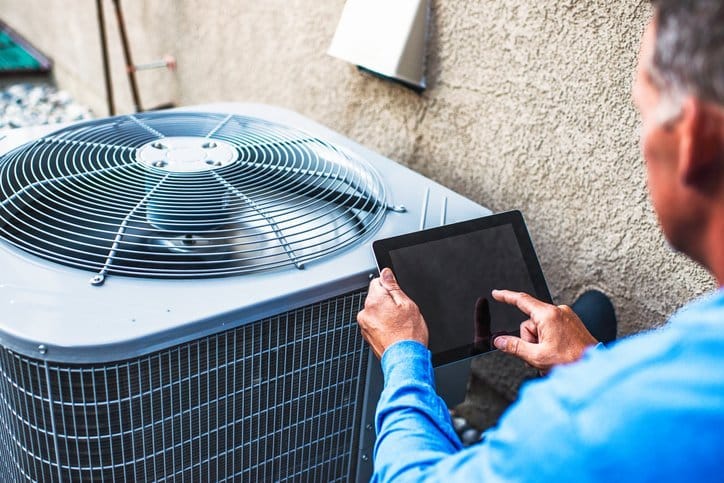In society, energy savings has become a pressing concern for residential property owners and businesses alike. One of the most significant areas for improving energy efficiency lies in heating, ventilation, and air conditioning (HVAC). If you are seeking to reduce your energy bills or enhance the comfort of your living or working environment, comprehending the fundamentals of HVAC stands as essential.
This beginner’s guide will explore what HVAC and how it operates, equipping you with the knowledge needed to handle frequent HVAC issues and maintain your system efficiently. We will discuss strategies for improving energy efficiency, including selecting the right HVAC system to optimizing thermostat controls for different times of the year. Come along as we uncover the approaches that can help you lower expenses while ensuring a comfortable atmosphere throughout the year.
Comprehending HVAC Systems
Heating, Ventilation, and Air Conditioning, an acronym for Heating, Ventilation, and Air Conditioning, is vital for maintaining pleasant indoor spaces. It encompasses multiple technologies that regulate temperature, humidity, and indoor air quality in home and industrial settings. These systems work together to produce a harmonious atmosphere, guaranteeing that the heat is evenly spread during winter seasons and that cool air circulates during the summer months.
The functioning of an HVAC system can be divided into three primary elements: warming, airflow, and air conditioning. Heating https://rentry.co/sx5b9cg6 , such as furnaces and heating pumps, produce warmth, while cooling systems provide cold air to provide coolness in high temperatures. Ventilation is the process of replacing air inside a building to remove humidity, odors, and airborne diseases, thereby improving indoor air quality. Understanding how these factors functions enables homeowners and businesses customize their HVAC systems to address their individual demands.
When purchasing an HVAC solution, factors like fuel efficiency, price, and the dimensions of the space must be evaluated. Modern HVAC systems are increasingly manufactured with efficiency-enhancing features that reduce both ecological footprint and utility bills. The latest technologies, such as intelligent climate controls and zoned heating and cooling, offer property owners enhanced command over their warmth and cooling, emphasizing the need to remain updated about choices and developments in the sector. This understanding can result in improved satisfaction and substantial reductions in costs over time.
Enhancing Energy Conservation

To enhance energy efficiency in your HVAC system, start by ensuring that it is appropriately sized for your home. An too large system can lead to short cycling, where the system turns on and off, spending energy and resulting in wear and tear. On the other hand, an too small system may have difficulty to keep acceptable temperatures, leading to longer operation times and higher utility costs. Get advice from a qualified technician to assess the correct size for your HVAC system based on your residence's square footage, insulation, and additional elements.
Routine maintenance is key to keeping your HVAC system running smoothly. Schedule seasonal inspections to maintain components, check coolant levels, and replace filters as needed. Dirty filters can limit airflow and make your system struggle, which increases energy consumption. Additionally, making sure that coils and fans are free of debris can help maximize airflow and efficiency, which in turn reducing your energy costs and lengthening the duration of your appliances.
Incorporate smart technology into your HVAC system for improved energy efficiency. Advanced thermostats allow you to program heating and cooling schedules based on your daily routine, making sure that energy is not thrown away when you're not home. They can also become familiar with your preferences over time and adjust settings on their own for optimal comfort. Moreover, consider zone control that allow you to heat and cool parts of your home separately, providing enhanced temperature control and more reducing your energy bills.
Caring for Your HVAC System
Consistent maintenance of your HVAC system is essential to achieve optimal performance and longevity. Commence by checking and replacing air filters every month or so, as contaminated filters can obstruct airflow, reducing the efficiency of the system and leading to higher energy costs. Additionally, ensure the area around your outdoor unit free of debris such as leaves, grass clippings, and snow to promote proper airflow and operation.
Seasonal maintenance checks are important for maintaining the efficiency of your HVAC system. Arrange a professional inspection at least a single time a year, preferably in spring for air conditioning units and fall for heating systems. During air conditioning service , a technician can maintain components, check for refrigerant leaks, and verify all electrical connections are tight. This proactive approach merely extends the life of your system but can also avert costly repairs down the line.
Furthermore, homeowners should be watchful for any warning signs that could indicate a need for repair. Pay attention to strange noises, rising energy bills, or inconsistent temperatures throughout your home. Addressing these issues quickly can save you from more extensive problems and help maintain a comfortable indoor environment. By dedicating yourself to regular maintenance and staying informed about your system’s performance, you can enjoy efficient heating and cooling for an extended period to come.
